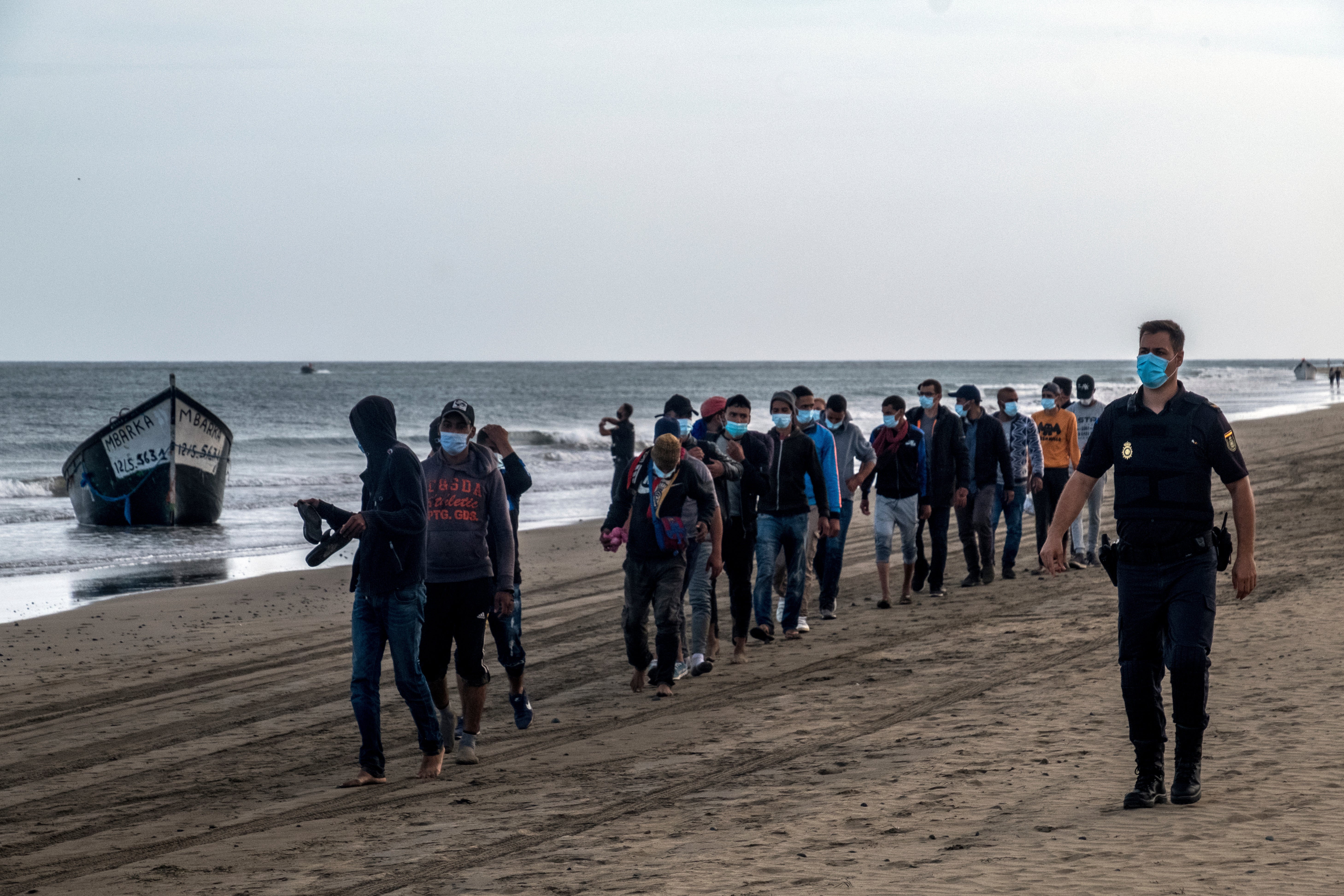Spain in diplomatic push over migrant flow to Canary Islands
The Spanish government is ratcheting up its response to the steady build-up of migrant arrivals to the Canary Islands from Africa, including a fresh diplomatic offensive

Your support helps us to tell the story
From reproductive rights to climate change to Big Tech, The Independent is on the ground when the story is developing. Whether it's investigating the financials of Elon Musk's pro-Trump PAC or producing our latest documentary, 'The A Word', which shines a light on the American women fighting for reproductive rights, we know how important it is to parse out the facts from the messaging.
At such a critical moment in US history, we need reporters on the ground. Your donation allows us to keep sending journalists to speak to both sides of the story.
The Independent is trusted by Americans across the entire political spectrum. And unlike many other quality news outlets, we choose not to lock Americans out of our reporting and analysis with paywalls. We believe quality journalism should be available to everyone, paid for by those who can afford it.
Your support makes all the difference.The Spanish government is ratcheting up its response to the steady build-up of migrant arrivals to the Canary Islands from Africa including a fresh diplomatic offensive.
The ministers in charge of migration and transportation, José Luis Escrivá and José Luis Ábalos respectively, were on Friday visiting the archipelago, whose nearest island is around 70 miles (110 kms) west of Morocco.
They are set to detail a long-awaited plan of action on how to ensure the islands don't become Europe's next migrant hot spot.
Nearly 17,000 people fleeing poverty, violence or other circumstances at home have arrived in the archipelago this year, half of them in the past 30 days. The surge has strained rescue services, police resources, and emergency workers. Meanwhile, migrants and potential asylum seekers remain stranded in a dock for days and under unfit conditions.
Some 6,000 migrants are being temporarily housed in hotels and tourist apartments that are lying empty because of a lack of visitors as a result of the coronavirus pandemic. Normally at this time of year, the islands are one of the most popular holiday destinations in Europe.
While ministers were in the Canary Islands, Spain s foreign minister, Arancha González-Laya, was due to hold talks with officials from the United Nations migration and refugee bodies in Geneva, ahead of a weekend trip to Senegal. The west African country has become one of the main points of migrant departures even though it is around 2,500 miles (4,000 kms) away.
Also on Friday, Interior Minister Fernando Grande-Marlaska traveled to Morocco to negotiate speedier deportation of Moroccan citizens, said a ministry official who asked not to be named because he wasn't allowed to discuss Grande-Marlaska's agenda.